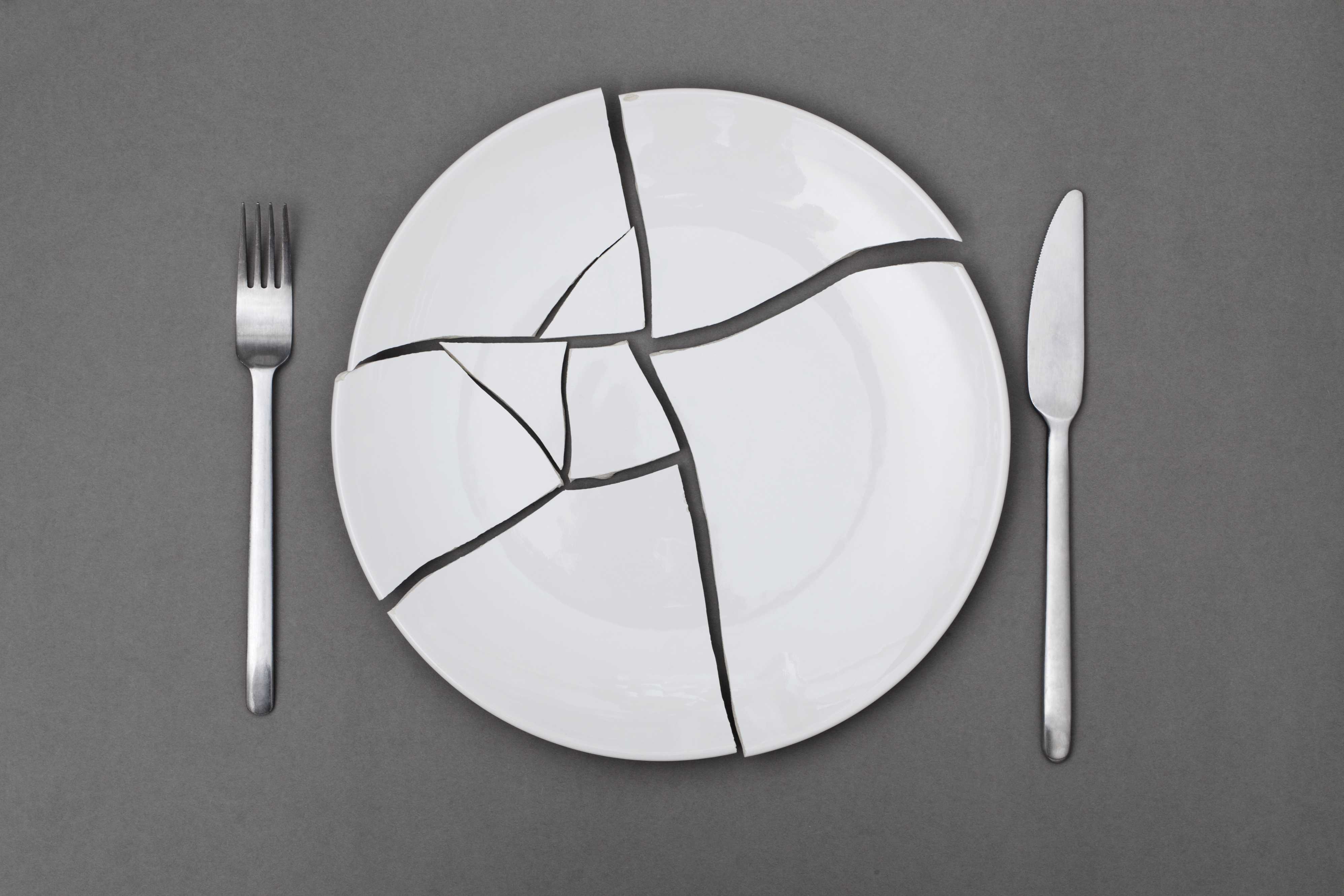

It’s the end of a stressful day at work and you’re about to head out when you get into a fight with a colleague. Then, a careless driver cuts you off on your way home and almost causes a crash. Needless to say, you’re upset. You get home, and suddenly, that chocolate cake waiting in the fridge is the only thing on your mind. You open the fridge, take one bite, and before you know it, the whole thing is gone. You feel embarrassed and ask yourself: “Why do I always do this?”
Difficult emotions like anger, guilt, and sadness are an inevitable part of life. While some people are particularly skilled at coping with their negative feelings, some of us find ourselves easily overwhelmed with strong emotions and can stay upset for hours on end.
According to research, lacking effective strategies to manage our difficult emotions is not without consequences—studies show it can put us at risk of various mental health problems, including disordered eating behaviours like binge eating and overexercising. But all is not doomed; learning to cope effectively with our negative feelings is possible and might just be the key to healthy eating.
Disordered Eating: A Coping Mechanism?
Did you know that up to one in four individuals will struggle with disordered eating at some point in their lives [1]? Disordered eating refers to a range of unhealthy eating behaviours and attitudes, which can include restrictive dieting, overeating, and negative attitudes towards weight and body shape. Although not as severe as clinical eating disorders, disordered eating is associated with negative health outcomes such as substance use, mood, and anxiety disorders [2]. Consequently, researchers have been trying to identify what puts people at risk of developing eating difficulties. By doing so, they hope to become more effective at detecting and treating disordered eating early before things get worse.
Current research shows that women who tend to experience intense negative emotions may be at greater risk for disordered eating. For example, in one study [3], researchers asked 276 female college students to report on their temperament and disordered eating. They found that those predisposed to experiencing negative emotions were much more likely to display symptoms of bulimia nervosa. In another study [4], researchers recruited 488 adolescent girls and measured their level of disordered eating, depressive symptoms, and self-esteem. They found that girls who reported more depressive symptoms and lower self-esteem were more likely to display restrictive dieting, bulimia, and weight and shape concerns—again suggesting a link between negative emotions and disordered eating.
Researchers then went a step further and wondered if struggling to regulate the duration and intensity of negative emotions could also be associated with disordered eating. To answer this question, they recruited 234 teenage girls and measured their emotion regulation skills and disordered eating [5]. They found that girls who struggled to identify and cope effectively with their negative emotions were indeed more likely to experience eating difficulties.
Taken together, these findings reveal an interesting picture; it appears that women who struggle to regulate their emotions may experience more intense negative feelings and, in turn, be more likely to rely on unhealthy eating behaviours in an attempt to cope with these difficult emotions. But one question remains: What about men?
Moving Disordered Eating Research Forward
An important limitation of current disordered eating research is that most studies have focused mainly on women. Consequently, we know little about how disordered eating manifests in men and which men are more likely to struggle with it. Men may have been underrepresented in disordered eating research, in part, due to a lack of public awareness and social stigma surrounding eating problems in men [6]. These factors may have contributed to a lower likelihood of men reporting their symptoms, being diagnosed, and being treated [6].
Thankfully, this is starting to change, and researchers are paying increasing attention to men struggling with disordered eating. So far, it appears that the link between disordered eating and emotion regulation difficulties may not be exclusive to women. In one study, researchers [7] recruited 296 college men and assessed their mood, emotion regulation skills, and disordered eating. They found that men who reported a negative mood and struggled to manage their emotions were significantly more likely to experience disordered eating symptoms. Similarly, preliminary findings from an ongoing study in Dr. Booij’s Stress, Neurodevelopment and Emotions Lab at Concordia University suggest that men who report greater difficulties regulating their emotions also tend to experience more severe disordered eating.
Although enlightening, these findings are only correlational. Therefore, future studies will need to look at men with disordered eating over time to determine precisely how struggling to regulate negative emotions may contribute to the development of eating problems among men.
Managing Our Emotions for Healthier Eating
Until recently, little was known about the link between negative emotions and eating behaviours, especially among males. Thanks to recent developments in disordered eating research, we now know that struggling to cope with our emotions may make both men and women more vulnerable to developing eating problems.
Fortunately, various psychotherapies have been effective for treating emotional problems and disordered eating, including Dialectical Behaviour Therapy (DBT), which targets specifically emotion regulation difficulties [8]. Seeking help is not easy, but therapy can be a powerful tool to learn how to make sense of our emotions and develop healthy coping strategies, like mindfulness, to regulate our negative feelings.
So, the next time you’re upset, take a moment to stop what you’re doing, breathe, and try to get a little more comfortable with your distress. Remember—not all coping skills are the same, and some might cause more harm than good in the long run. Although eating a whole cake may provide temporary relief, it is not the only option. Taking a moment to identify your emotions and breathing deeply could be more effective, and it doesn’t cost a penny.
References
-
Navruz, V. S., Macit, M. S., Mortas, H., Tatar, T., & Sanlier, N. (2017). Evaluation of disordered eating tendencies in young adults. Eating and Weight Disorders, 22(4), 623–631. https://doi.org/10.1007/s40519-017-0430-9
-
Gadalla, T., & Piran, N. (2008). Psychiatric comorbidity in women with disordered eating behavior: A national study. Women & Health, 48(4), 467–484. https://doi.org/10.1080/03630240802575104
-
Ringham, R., Levine, M., Kalarchian, M., & Marcus, M. (2008). Temperament, mood, dietary restraint, and bulimic symptomatology in college women. Eating Behaviors, 9(3), 336–342. https://doi.org/10.1016/j.eatbeh.2007.12.002
-
Rodgers, R. F., Paxton, S. J., & McLean, S. A. (2014). A biopsychosocial model of body image concerns and disordered eating in early adolescent girls. Journal of Youth and Adolescence, 43(5), 814–823. https://doi.org/10.1007/s10964-013-0013-7
-
Sim, L., & Zeman, J. (2006). The contribution of emotion regulation to body dissatisfaction and disordered eating in early adolescent girls. Journal of Youth and Adolescence, 35(2), 219–228. https://doi.org/10.1007/s10964-005-9003-8
-
Murray, S. B., Nagata, J. M., Griffiths, S., Calzo, J. P., Brown, T. A., Mitchison, D., Blashill, A. J., & Mond, J. M. (2017). The enigma of male eating disorders: A critical review and synthesis. Clinical Psychology Review, 57, 1–11. https://doi.org/10.1016/j.cpr.2017.08.001
-
Lavender, J. M., & Anderson, D. A. (2010). Contribution of emotion regulation difficulties to disordered eating and body dissatisfaction in college men. International Journal of Eating Disorders, 43(4), 352–357. https://doi.org/10.1002/eat.20705
-
Reilly, E. E., Orloff, N. C., Luo, T., Berner, L. A., Brown, T. A., Claudat, K., Haye, W. H., Anderson, L. K. (2020). Dialectical behavioral therapy for the treatment of adolescent eating disorders: A review of existing work and proposed future directions. Eating Disorders, 28(2), 122–141. https://doi.org/10.1080/10640266.2020.1743098
About the Author
Micaël Thériault is an undergraduate student in the Honours psychology program at Concordia University. He recently completed his thesis under the supervision of Dr. Linda Booij, in which he examined the association between difficulties in emotion regulation and disordered eating in men. He is passionate about everything related to clinical and forensic psychology. After his graduation, Micaël plans on pursuing graduate studies in clinical psychology or another related field.







Share this post
Twitter
Facebook
Email